We drift from copse to copse. One to the south is now fenced off by the Nature Conservancy to see what effect keeping moorland sheep, bullocks and wild ponies from grazing will have. It has a much denser growth at ground level, far more thickety, and is perhaps what the wood would have looked like centuries ago, before stock was widely run on the Moor; and yet now seems artificial — scientifically necessary, aesthetically less pleasing, less surreal, historically less honest beside the still open wood, 'gardened' by what man has introduced. There is talk now of wiring off the whole wood like this, reserving it from the public, as at Stonehenge. Returning, we come on two hikers, rucksacks beside them, lying on their backs inside the trees, like two young men in a trance. They do not speak to us, nor we to them. It is the place, wanting it to oneself, and I am prey to their same feeling. I persuade my wife to start the long climb back. I will catch up. I go alone to the most detached and isolated of the copses, the last and highest, to the north. It grows in a small natural amphitheatre, and proves to be the most luxuriant, intricate and greenly beautiful of the chain. I sit in its silence, beneath one of its most contorted trees, a patriarchal gnome-oak. The botanist in me notices a colony of woodrush, like a dark green wheat among the emerald clitter; then the delicate climbing fumitory Corydalis claviculata , with its maidenhair-fern leaves and greenish-white flowers. A not uncommon plant where I live in Dorset; yet now it seems like the hedgesparrow's song, hyperdistinct, and also an epitome, a quintessence of all my past findings and knowledge of it; as with the oaks it grows beneath, subsuming all other oaks. I remember another corydalis, bulbosa , that they still grow in the garden at Uppsala in honour of the great man, who named the genus.
From somewhere outside, far above, on top of Longford Tor, I hear human voices. Then silence again, The wood waits, as if its most precious sap were stillness. I ask why I, of a species so incapable of stillness, am here.
I think of a recent afternoon spent in discussion with a famous photographer, and how eminently French and lucid his philosophy of art seemed, compared to mine. I envied him a little, from the maze of my own constantly shifting and confused feelings. I may pretend in public that they are theories, but in reality they are as dense and ravelled as this wood, always beyond my articulation or rational comprehension, perhaps because I know I came to writing through nature, or exile from it, far more than by innate gift. I think of my father and, wrily, of why I should for so many years have carried such a bad, unconsciously repressing mental image of Wistnian's Wood — some part or branch of him I had never managed to prune out. It is incomprehensible now, before such inturned peace, such profound harmlessness, otherness, selflessness, such unusing. . all words miss, I know I cannot describe it.
A poet once went near, though in another context: the strange phosphorus of life, nameless under an old misappellation.
So I sit in the namelessness, the green phosphorus of the tree, surrounded by impenetrable misappellations. I came here really only to be sure; not to describe it, since I cannot, or only by the misappellations, to be sure that what I have written is not all lucubration, study dream, in vitro , as epiphytic upon reality as the ferns on the branches above my head.
It, this namelessness, is beyond our science and our arts because its secret is being, not saying. Its greatest value to us is that it cannot be reproduced, that this being can be apprehended only by other present being, only by the living senses and consciousness. All experience of it through surrogate and replica, through selected image, gardened word, through other eyes and minds, betrays or banishes its reality. But this is nature's consolation, its message, and well beyond the Wistman's Wood of its own strict world. It can be known and entered only by each, and in its now, not by you through me, by any you through any me; only by you through yourself, or me through myself. We still have this to learn; the inalienable otherness of each, human and non-human, which may seem the prison of each, but is at heart, in the deepest of those countless million metaphorical trees for which we cannot see the wood, both the justification and the redemption.
I turned to look back, near the top of the slope. Already Wistman's Wood was gone, sunk beneath the ground again; already no more than another memory trace, already becoming an artefact, a thing to use. An end to this, dead retting of its living leaves.
1979

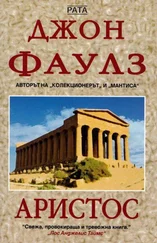
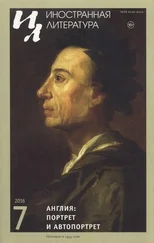

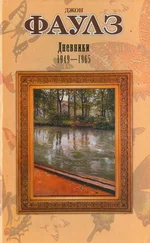
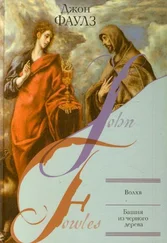
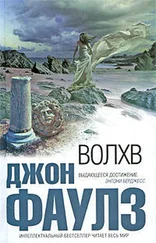

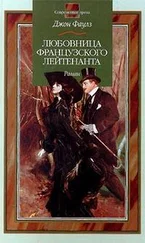
![Джон Фаулз - Вылазка в действительность [антология]](/books/431648/dzhon-faulz-vylazka-v-dejstvitelnost-antologiya-thumb.webp)
![Джон Фаулз - Мантисса [litres]](/books/438194/dzhon-faulz-mantissa-litres-thumb.webp)